Gynecology
Gynecology is the branch of medicine that focuses on the health of the female reproductive system, including the uterus, ovaries, and vagina. Gynecologists are medical doctors who specialize in gynecology and provide care for women from adolescence through menopause and beyond.
Key Concepts in Gynecology
- Anatomy of the Female Reproductive System: Understanding the structure and function of the uterus, ovaries, fallopian tubes, and vagina is essential in gynecology. Students should be familiar with the menstrual cycle and the role of hormones in regulating reproductive processes.
- Common Gynecological Conditions: Knowledge of common conditions such as menstrual disorders, pelvic inflammatory disease, endometriosis, and uterine fibroids is important. Students should understand the symptoms, causes, and treatment options for these conditions.
- Contraception and Family Planning: Students should learn about different methods of contraception, including barrier methods, hormonal contraception, and long-acting reversible contraceptives (LARCs). They should also be familiar with preconception counseling and fertility awareness methods.
- Sexually Transmitted Infections (STIs): Understanding the transmission, symptoms, and prevention of STIs is crucial in gynecology. Students should be aware of common STIs such as chlamydia, gonorrhea, herpes, and HPV.
- Screening and Prevention: Gynecological exams, Pap smears, and HPV testing are important tools for early detection of cervical cancer and other gynecological issues. Students should understand the guidelines for screening and prevention of gynecological cancers.
- Menopause and Hormone Replacement Therapy: Knowledge of the physical and hormonal changes associated with menopause, as well as the benefits and risks of hormone replacement therapy, is essential in gynecology.
Study Tips for Gynecology
Here are some study tips for mastering the concepts of gynecology:
- Visual Aids: Use diagrams and interactive resources to understand the anatomy of the female reproductive system.
- Case Studies: Reviewing case studies of gynecological conditions can help reinforce understanding of symptoms, diagnosis, and treatment options.
- Practice Questions: Test your knowledge with practice questions related to gynecology, including anatomy, physiology, and common conditions.
- Real-life Application: Connect gynecological concepts to real-life scenarios to solidify your understanding of how these principles apply in clinical practice.
- Stay Updated: Keep abreast of current research and guidelines in gynecology to ensure you have the most up-to-date information.
◂Science Worksheets and Study Guides Seventh Grade. Weathering of rocks and soil formation
Study Guide Weathering of rocks and soil formation
Weathering of rocks and soil formation  Activity Lesson
Activity Lesson Weathering of Rocks
Weathering of Rocks  Worksheet/Answer key
Worksheet/Answer key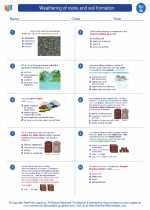 Weathering of rocks and soil formation
Weathering of rocks and soil formation  Worksheet/Answer key
Worksheet/Answer key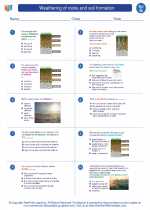 Weathering of rocks and soil formation
Weathering of rocks and soil formation  Worksheet/Answer key
Worksheet/Answer key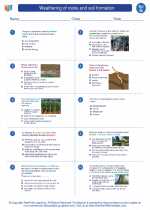 Weathering of rocks and soil formation
Weathering of rocks and soil formation  Worksheet/Answer key
Worksheet/Answer key Weathering of rocks and soil formation
Weathering of rocks and soil formation  Vocabulary/Answer key
Vocabulary/Answer key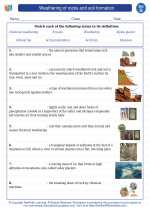 Weathering of rocks and soil formation
Weathering of rocks and soil formation  Vocabulary/Answer key
Vocabulary/Answer key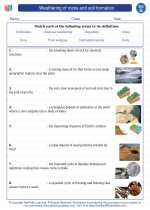 Weathering of rocks and soil formation
Weathering of rocks and soil formation  Vocabulary/Answer key
Vocabulary/Answer key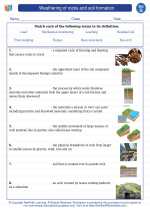 Weathering of rocks and soil formation
Weathering of rocks and soil formation  Vocabulary/Answer key
Vocabulary/Answer key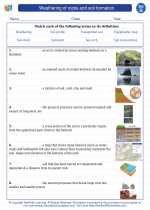 Weathering of rocks and soil formation
Weathering of rocks and soil formation 

 Activity Lesson
Activity Lesson
 Worksheet/Answer key
Worksheet/Answer key
 Worksheet/Answer key
Worksheet/Answer key
 Worksheet/Answer key
Worksheet/Answer key
 Worksheet/Answer key
Worksheet/Answer key
 Vocabulary/Answer key
Vocabulary/Answer key
 Vocabulary/Answer key
Vocabulary/Answer key
 Vocabulary/Answer key
Vocabulary/Answer key
 Vocabulary/Answer key
Vocabulary/Answer key

The resources above cover the following skills:
LIFE SCIENCE
Unity and Diversity
Analyze and interpret data for patterns of change in anatomical structures of organisms using the fossil record and the chronological order of fossil appearance in rock layers.